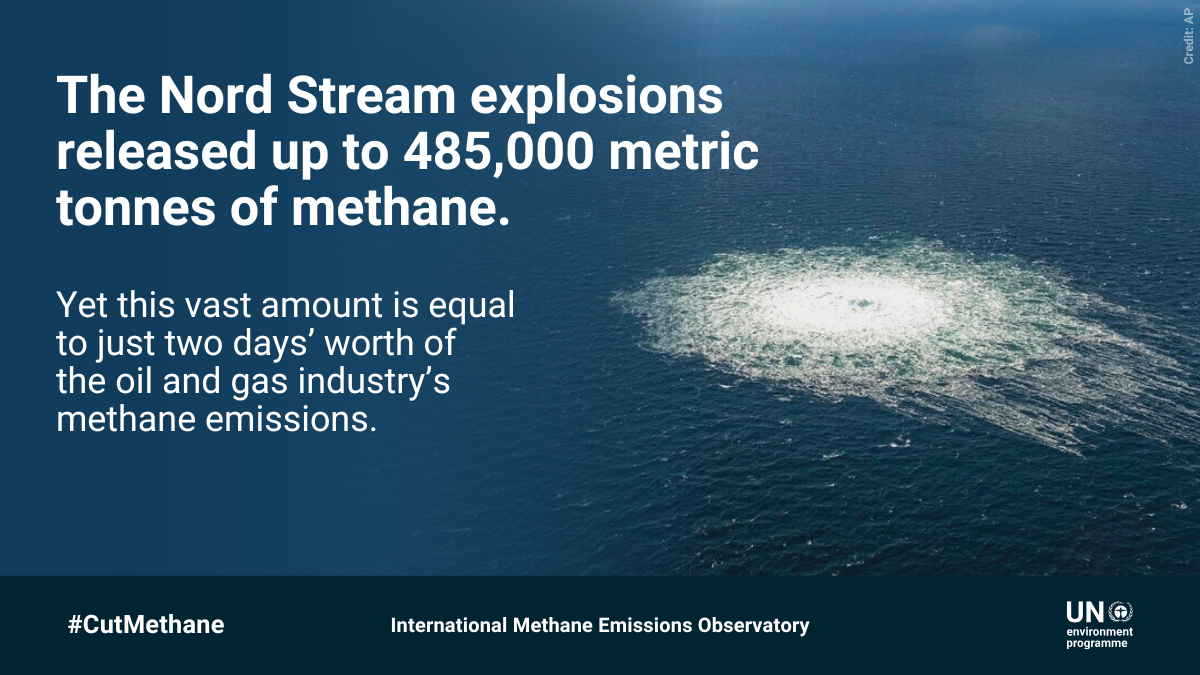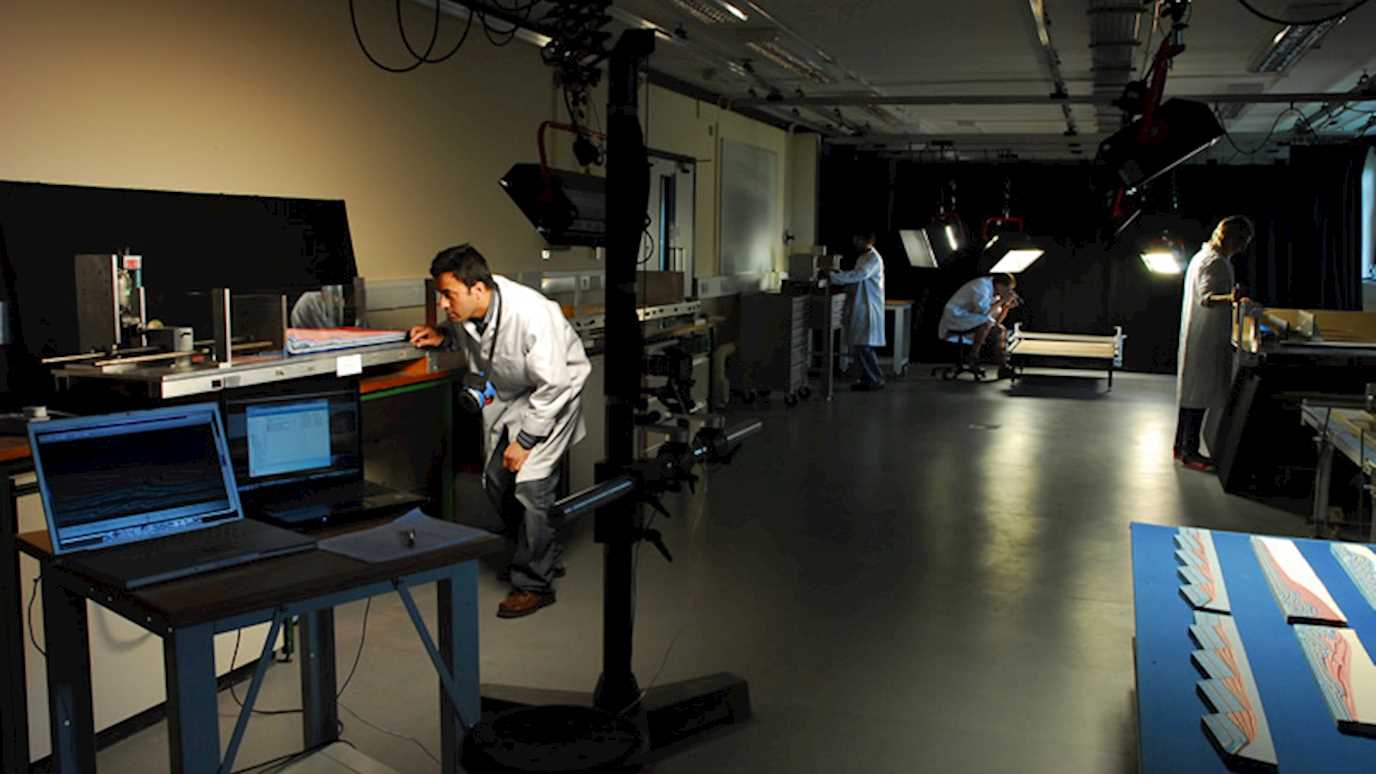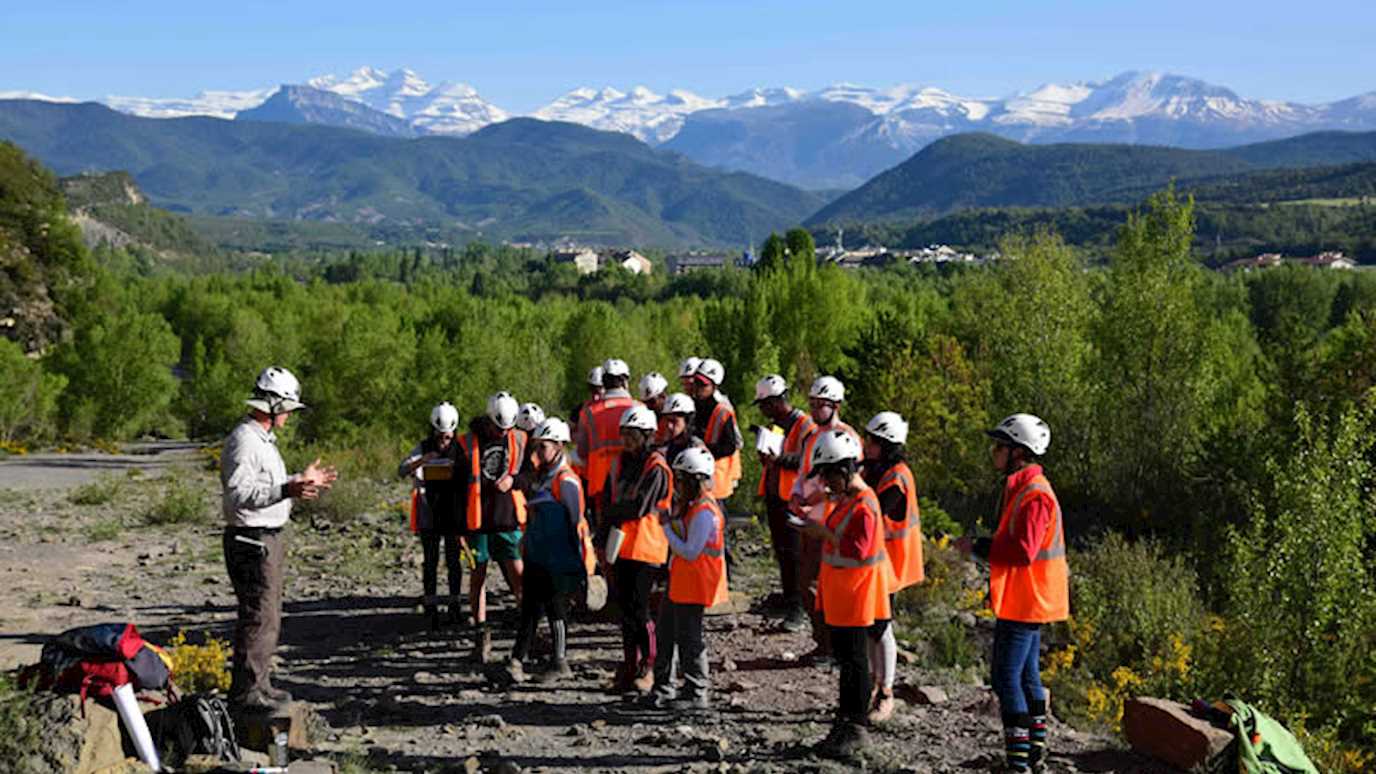The rupture of Europe’s Nord Stream gas pipelines more than two years ago resulted in the planet’s largest human-caused release of methane; new study coordinated by the United Nations Environment Programme (UNEP) finds.
The study, led by UNEP and co-authored by Dr James France from the Department of Earth Sciences at Royal Holloway, University of London, found that up to 485,000 tonnes of methane seeped from the pipeline network following a series of explosions under the Baltic Sea in September of 2022.
That was more than twice as much as previously thought.
Methane, often a byproduct of oil and gas production, causes about one-third of global warming, and whilst it only exists in the atmosphere for about a decade, it is over 80 times more effective at trapping heat than the world’s most common greenhouse gas, carbon dioxide.
The Nord Stream leak was already viewed as one of the largest human-caused methane releases in history. However, the new UNEP analysis reveals for the first time its true scope.
The leak was nearly five times larger than the world’s previous record holder, a release from the Aliso Canyon natural gas storage facility in the United States.
Over the short-term, the Nord Stream leak contributed as much to global warming as would have eight million cars driven for a year.
Nearly 70 scientists from 30 research organisations participated in the study, using atmospheric data, satellite-based images, marine observations, aerial measurements and engineering estimates to gauge how much methane dissolved into the Baltic Sea and then escaped into the atmosphere.
Dr James France from Royal Holloway and part of the Environmental Defense Fund Europe, helped to co-ordinate and conceptualise the study through his role as a scientific advisor to the UNEP International Methane Emissions Observatory.
He said: "The report highlights that it was an emission of global significance to the atmosphere, approximately equal to two days' worth of methane emissions from the global oil and gas industry.”
“Methane emissions are rising faster than at any time since the 1980s. The Intergovernmental Panel on Climate Change has called on countries to cut releases by at least 30 per cent by 2030 to keep alive the Paris agreement goal of limiting the Earth’s temperature rise to 1.5°C.
“Ensuring that industry accurately measures and tracks their emissions will be key to monitoring mitigation efforts and enabling effective regulation designed to reduce emissions."






























